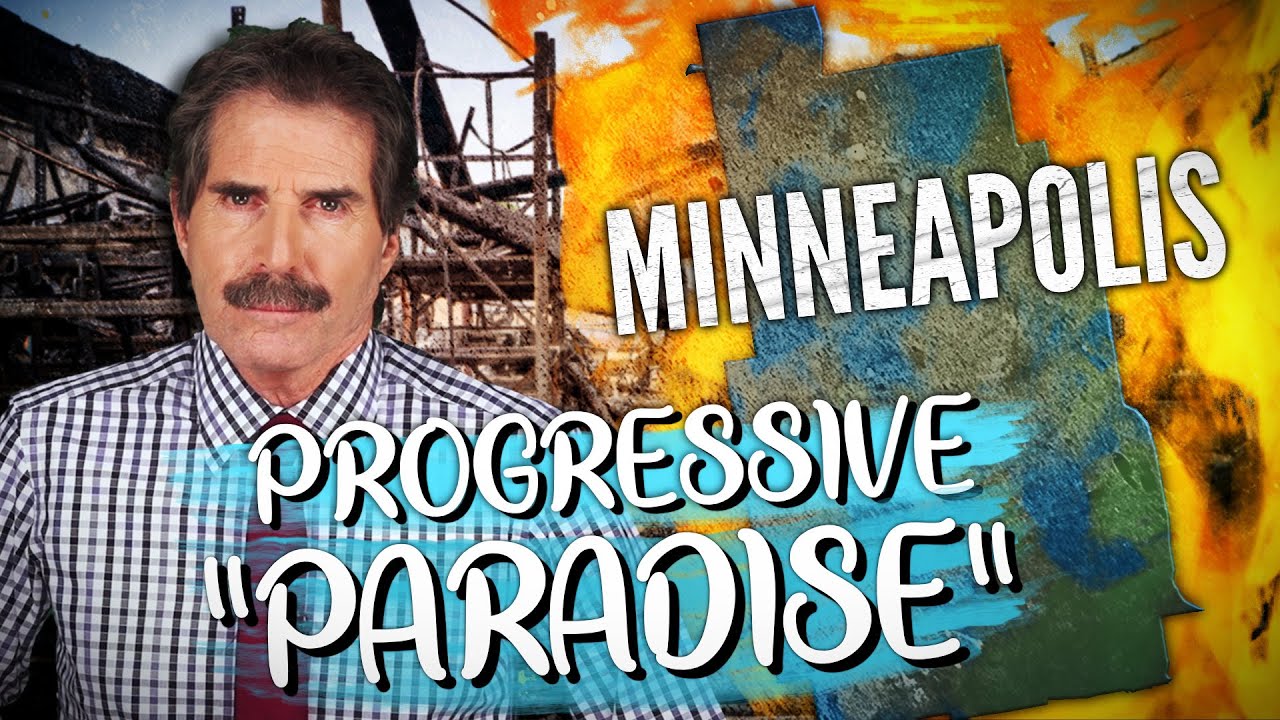by Dan Mitchell
I recently speculated whether Seattle should be considered the worst-governed city in the country.
Though there’s lots of competition for that honor from places like San Francisco, Detroit, New York City, and Chicago. And John Stossel makes a compelling case for Minneapolis in this new video.
As I’ve previously noted, statist policies are never a good idea, but they’re especially foolish when adopted by local or state governments.
Why? Because it’s relatively easy for productive people to escape bad policy by moving across borders.
And that happens. A lot.
Yet the folks in Minnesota – at least if the anti-capitalism comments in the video are any indication – must not care whether the geese with the golden eggs fly away.
To learn more, let’s take a look at the Washington Poststory referenced in the Stossel video.
Authored by Tracy Jan, it looks at all the big-government policies imposed by local and state government.
The Twin Cities…and…progressive policies… Taxes, for decades, have been redistributed from wealthy suburbs to poorer communities to combat inequality — an effort bolstered in recent years by raising state income taxes on the rich. The result: more money for schools, affordable housing and social services in lower-income neighborhoods. …Minnesota’s progressive reputation was cemented nearly five decades ago… Gov. Wendell Anderson…worked with the Republican-controlled legislature to pass…a redistributive tax policy introduced in 1971 that required wealthy communities in the Twin Cities region to share their commercial property tax revenue with the poorest areas. Income and sales tax revenue from rich suburbs across the state also was shared with less-affluent cities and rural communities to fund schools, police and housing. …It would be the beginning of a suite of policies that over subsequent decades increased investments in housing, schools and small businesses in disadvantaged communities. …more state aid poured into poor communities in 2013, when then-Gov. Mark Dayton raised taxes on the wealthiest Minnesotans. The Democrat…campaigned to “Tax the Rich!” — saying everyone should pay their “fair share” to keep society “functional.” The income tax rate, already fairly high for top income earners compared with other states, increased from 7.85 percent to 9.85 percent for individuals making more than $150,000.
I fully agree with Stossel that the story’s headline is hopelessly biased, though that’s usually the fault of editors rather than reporters.
But let’s set that aside and focus on the details in the report.
What conclusions are warranted? The reporter can’t resist making a silly assertion that growth isn’t part of the solution (she’s obviously not familiar with Census Bureau data).
Those enduring disparities…highlight the flawed premise…that economic prosperity is a remedy for racial inequality.
Though she does acknowledge that the mess in Minneapolis poses a challenge for the left’s argument that big government is the answer.
…progressive policies ha[ve] not translated into economic equality. Instead, the wealth gap between Minneapolis’s largely white population and the city’s black residents has deepened, producing some of the nation’s widest racial disparities in income, employment and homeownership. …The shortcomings have given rise to an urgent debate about where Minneapolis went wrong and what measures would bring better results. …The typical black family in the Twin Cities earned $39,851 in 2017, lower than the median income for African Americans nationally… A quarter of black households lived in poverty, five times the poverty rate for white households. …the outcome for black residents in Minneapolis and St. Paul…undercuts the liberal argument that spending on progressive policies can create systemic change. …Black residents…are worse off today by some measures than they were 20 and 30 years ago, even as the fortunes of their white counterparts held steady or improved, according to census data. …Despite a slew of programs to help first-time home buyers, only a quarter of black residents in the Twin Cities own their homes…much lower than the national black homeownership rate of 42 percent.
I’ll make four points in response to this story.
First, there is no substitute for growth, and – as Stossel observed in the video, but as Ms. Tan doesn’t seem to appreciate – we shouldn’t care if some groups get rich faster than other groups.
Second, stronger growth not only explains why average living standards in the United States are higher than in other nations, but also why the average low-income person in America does better than the average middle class person in many other countries.
Third, the only effective and successful way to achieve long-run growth is with free markets and small government, but Minnesota doesn’t fare well in rankings of economic liberty (see here, here, and here) and Minneapolis scores poorly when cities are ranked.
Fourth, the redistribution programs from both local and state governments doubtlessly have trapped many poor residents in dependency, especially since there are high implicit marginal tax rates if they seek self-sufficiency and financial independence.
The bottom line is that Minneapolis has poor governance, as does the entire state of Minnesota, but the politicians will have to try harder to achieve worst-in-nation status.

